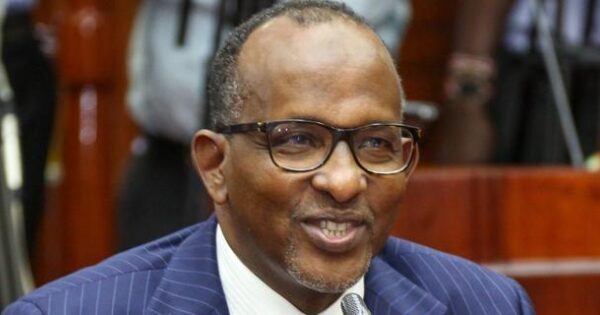For the first time since the establishment of the United Nations in 1945, the UN General Assembly was held virtually because of the COVID-19 global pandemic. World leaders stayed away from the UN headquarters in New York, in yet another pointer of the blistering impact of the health crisis on international relations. The latest projection by the World Health Organization that a million more lives could be lost to the virus in the next nine months, indicates the perils of weak international cooperation that has so far held back global synergy for effective and sustainable response against the pandemic.
The COVID-19 pandemic looms large on all the three pillars that anchored the UN founding namely: peace and security; development; and human rights. While there has been monumental progress in reducing inter-state conflict, internal fragility and armed conflict remains a reality across many territories. Displaced persons are at a greater risk of contracting the virus, with provisions of health services disrupted by terrorist activities in some countries. Even among the advanced economies, the impact of the pandemic will take years to overcome.
The trail of economic disruptions as a result of the pandemic is yet to tank. In the United States, over 30 million are jobless while industrial activity is yet to approximate pre-pandemic levels. The UN Food Programme has sounded a warning that as many as 30 million people could die from hunger and starvation in the developing world, if urgent measures are not taken. Similar warnings have been sounded by the International Labour Organization that now predicts a ‘lost decade’ in Latin America as a result of the health crisis.
Although African has posted impressive showing in reducing infections and death from coronavirus, with only 5% of global cases and 3.5% of deaths, the continent is up against monumental economic meltdown. African leaders therefore took turns at the UN Summit to push for international economic assistance, including debt cancellations.
In marking the 75th anniversary of the UN, different world leaders called for international cooperation against a myriad of challenges facing humanity. Equally, a pervading sense of economic nationalism and unilateralism percolated through the empty hallways of the General Assembly.
In the United States where the virus has claimed over 200, 000 lives, President Donald Trump continued his attack against Beijing while pouring scorn on the WHO. The US leader blamed earlier globalists and reinstated his ‘America first,’ approach to international cooperation. Globally, the death toll from the pandemic has hit the million yet Washington appears unmoved by the urgency for effective international response.
In a stark contrast to the US leader, China’s President Xi Jinping anchored his address on globalization and international cooperation. Xi called on joint efforts to reverse climate change; pushed for assistance to developing countries and recommitted to share the vaccine with least advanced economies when Beijing gets it. China’s support for different countries during the Covid-19 pandemic has been well documented.
What then is the future of United Nations and that of humanity? Since its founding, the UN has been a formidable platform for dialogue, exchanges and collective progress. Restraint on the use of force in international relations, fortification of human rights, including gender equality, and the millennium development goals all embellish the legacy of the UN. It is this utilitarian value of the UN that majority of countries and people around the world still believe it is most suited to lead global action on human challenges.
However, given the evolution of the international system in the last seven decades, the UN should be incrementally reformed to enable it play a more effective role in coordinating cooperative arrangements underlying its existence. Under the purview of the sustainable development goals, the UN member states have codified key aspirations that aim to holistically address cross-border challenges. This enviable dream is now at risk and calls for a more innovative, professional, strategic and inclusive UN.
The task of shaping a more functional UN cannot be left to countries with no desire to promote globalization and international cooperation. The actors which believe in and have demonstrated commitment to multilateralism should play a proactive role, towards a better world.
The writer is a scholar of international relations. Twitter: @Cavinceworld


























































